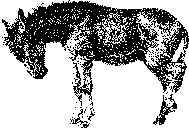
Can Lay 240 to 260 eggs a yearMedium-Large Creamy Brown Eggs per year.
Will Lay in Winter
Single Comb
Can Be Broody / Good Mother
Large Fowl
Hen Weight: Aprox 7 Pounds
Friendly, Make good Pets Adapts well to Confinement
History
The Sussex originated in the county of Sussex, England. They were prized table birds more than 100 years ago. The original colours were brown, red and speckled. I have only seen the speckled for sale in the USA. Bred to be a dual purpose bird, it is very productive choice for small farms and homesteads. The hen will lay around 260 large eggs that are cream to light brown in colour. The Sussex is one of the oldest breeds from England that are still in existence today.
Behavior
The Sussex chicken is an alert but docile breed that can adapt to any surrounding easily. They are good foragers. Whilst they are quite happy to be free range, they will also be fine if kept in a confined space. They can occasionally but not very often go broody. The speckled is the most likely of the breed to do this.
Varieties
The colors found in Sussex chickens are brown buff, light red, speckled, silver and white. The Sussex chicken whatever its color should be graceful. The eyes are red in the darker varieties but are orange in the lighter ones. They have a medium sized single comb. The earlobes are red and the legs and skin are white in every variety. The brown and red varieties are rare now with the other colors being quite common.
The Speckled Sussex was most famous in England as a table fowl with pinkish white skin and long, deep body ideal for fattening. It is of medium size, in the heavy breed class, a layer of light brown or tinted eggs, and the hens will set. Its plumage color is a delight to the eye being of rich mahogany base color with individual feathers ending in a white tip separated from the rest of the feathers by a black bar. Baby chicks vary greatly in color from a creamy buff to dark chestnut and some also have alternate dark and light stripes lengthwise on the back. This variety combines beauty with utility, and is very nice to raise for showing. These birds are very friendly and handle winters in the northeast very well. I just love them. I have raised these now for 20 years. The one dark hen in the back on the left in this photo is a barred rock. The other birds are all Speckled Sussex. Note the comb on that handsome cock!












